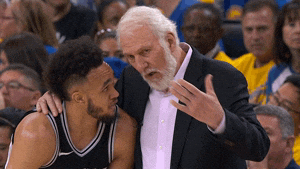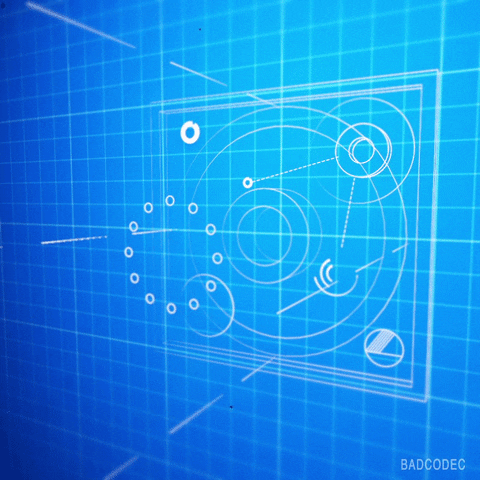GREAT Coaching in Strength and Conditioning
Strength and conditioning coaches are abundant. They are all over the place. They are all over social media, trying to tell athletes what they should be doing. Banded exercises, isometric, concentric, eccentric contractions, and a bunch of other wacky, crazy stuff in an effort to improve sports performance. We really want coaches that will help athletes compete in given sports or a given sport.

The first thing we have to look at is if the coach can take an athlete from a very young age, a completely blank slate, and work the athlete all the way up to the best level in the entire world, or at least close to that elite level. Can the coach develop a mediocre athlete into an elite level? Or just a mediocre athlete in middle school to become capable to play all throughout high school. And probably even more importantly, the coach can get the most out of the athlete from a physical and mental aspect.

It all goes back to having effective strength and conditioning coaches. Coaches who know how to motivate their athletes, create purpose, have open lines of communication, and can help athletes reach their goals.
Let’s look at the key factors that determine a great strength and conditioning coach.
1. Understand The Key Factors Behind Strength And Conditioning
Nutrition.
Communication (holding athletes and themselves accountable while establishing purpose).
Absolute strength (only absolute strength, only functional strength, or a combination of both?).
Plyometrics. Reflexive strength training. Dynamic trunk control.
Technical Coordination.
Bodybuilding.
Mobility (within the specific sport).
When a coach understands all the factors (and this list is a great start) and is able to piece everything together, they can sit down and realize how to best have their athletes have success. They will be able to create a better blueprint to have success having athletes transform from middle school pieces of clay into the diamonds they can become at the elite levels of sports performance.
We can’t just be training freak athletes, pawn them off on Instagram, and then act like we are really good at developing normal people. We have to prove that we can develop average athletes into elite performers.
2. Differentiating Sport By Sport
A wrestler needs to have really good strength, explosive capability, reflexive strength, and they have to do plyometrics, trunk work and have superior endurance. So for instance, I train an athlete like Nick Gwiazdowski, 2x world bronze medalist; I train Sam Mattis, who took 8th at the Olympics in the discus; and I train Nick Singleton, who started training with me in middle school and is now a top recruited running back in the entire country. All three of these athletes need some aspect of absolute strength, but one of them needs solid endurance, one needs a little bit of endurance, and the other doesn’t need much endurance at all.
Now all three need mobility work. However, they don’t need the same type of mobility work.
What it boils down to is as strength coaches we have to be able to differentiate those qualities sport by sport. We can’t just look ahead and say all wrestlers need to train this way. Not at all! Or all athletes should train this way. NOPE.
We have to understand the different sports, different rates of coordination, and the speed factors that go into each and every sport. We as coaches also have to understand and differentiate the sport qualities from individual to individual and where they are or lacking in regarding the sport qualities.
3. Energy And Passion Is Key
Coaches have to want to develop athletes. Coaches who just write things up on the whiteboard and disappear won’t cut it.

We want to create the passion and the energy to help the athletes succeed. We have to have athletes become the best versions of themselves. If we as coaches are not energetic and not bringing that passion, we can’t help them.
Athletes often don’t know what their physical or mental capabilities are. As the older person with the experience, we have to bring the passion, belief, and energy to let them know what they will become. We have to help the athletes rise to the top.
4. Technical Comprehension
Too often we will have strength coaches who have never executed a technical movement like a snatch or power clean and speak negatively about the movements. This is crazy, especially for movements directly within their field. At least go three or four blocks in a system that uses weightlifting components before lambasting it as not worth doing. Don’t just not do something.
Coaches need to have technical comprehension for specific movements in the realm of strength and conditioning. They also have to have technical comprehension for the sport they are training athletes for. Strength coaches training a sprinter, wide receiver, or baseball player better understand the technical components of the sport.
The depth of knowledge does not have to be as deep as the coaches in the sport, but a basic understanding is a must. All of the potential sports athletes will train for have technical elements. Looking at each sport and understanding the technical aspects is necessary. This helps develop a sound strength and conditioning program.
5. A Blueprint To Autonomy
Coaches who develop athletes over long periods of time, like five to seven years, tend to be good. At least if they work with me and the coaches at Garage Strength.

Getting athletes to be autonomous, providing the blueprint, educating the athletes on your coaching system over and over again, communicating clearly, the golden nugget of a nearly autonomous athlete develops.

Coaches with big egos, like me, for some reason get mad when athletes ask questions. If you are like me, you might get mad. BUT! If we, and this means me too, want to make our athletes really good we need to prepare our athletes to be autonomous so they can go into the weight room when you are not there to know how to push and when to back off. They become in-tune with their mental and physical capacity. This then allows them to provide better feedback.
More autonomous athletes create a more democratic relationship which leads to better sports performance. The lengthening of the leash allows athletes to start to push things a little bit more. Simple questions like, “Do you want to go up 10#s or 15#s?” go a long way to get the autonomy ball rolling.
Recap
Becoming a better strength and conditioning coach is a constant process. Many things need to be considered, worked upon, and grown. It is never-ending. Bringing great passion and energy goes a long way. Understanding the key concepts behind strength and conditioning is a must as well. But as discussed, there is even more. Coaches need to have a technical understanding not only in the weight room but of the sport they are training athletes for. And if this is all done well, the blueprint for athlete autonomy will come about to create better lines of communication for a more democratic athlete/coach relationship.
DANE MILLER
Dane Miller is the owner and founder of Garage Strength Sports Performance. He works with a select handful of clients on building comprehensive programs for fitness and nutrition. Several times a year he leads a workshop for coaches, trainers, and fitness enthusiasts.


